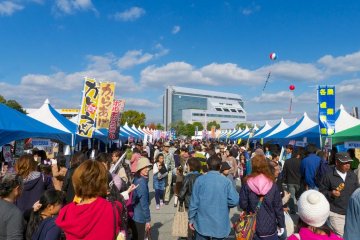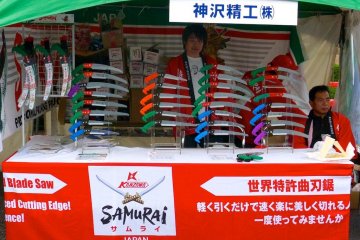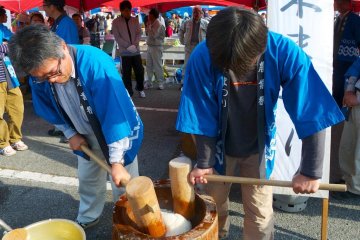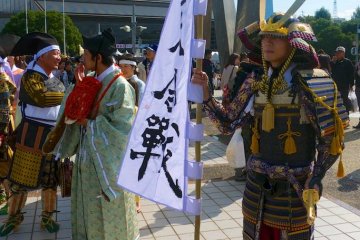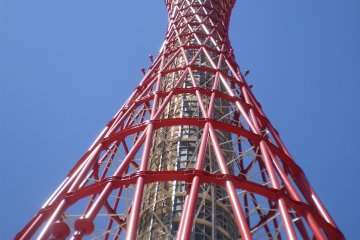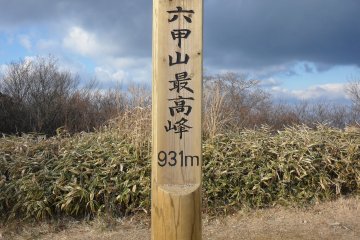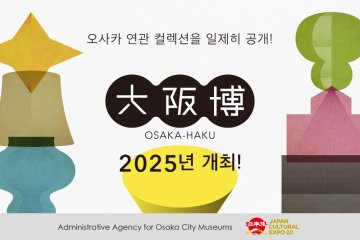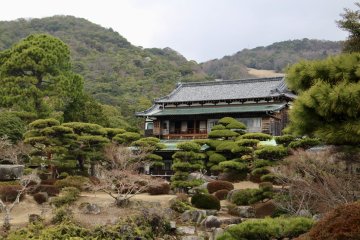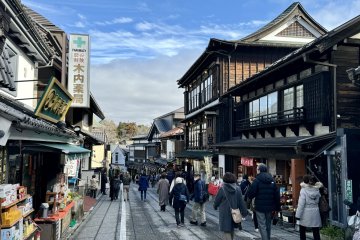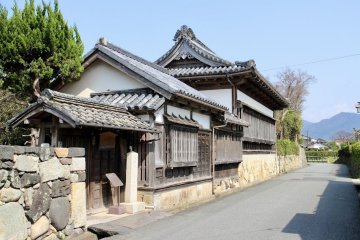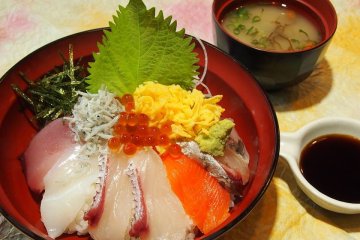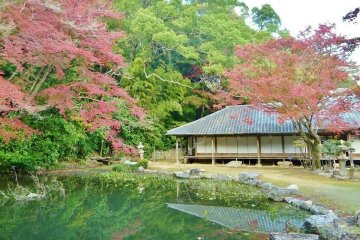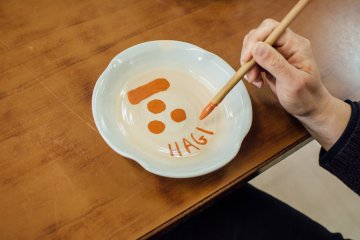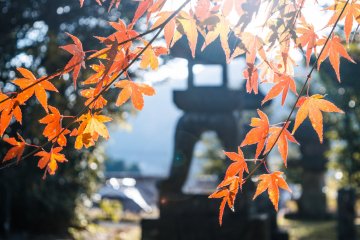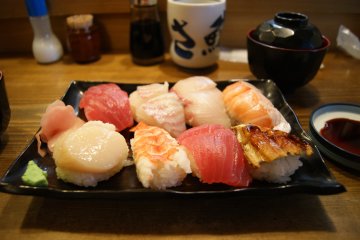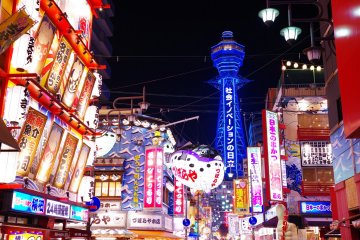Miki City is famous throughout Japan as one of the country's largest producers of hardware. From kitchen knives to hedge trimmers, almost every kind of hand tool can be found in Miki. If you are interested in getting a chance to see all of these tools in one place, you need to plan a trip to the annual Miki Hardware Festival.
Held the first weekend of November, the Miki Hardware Festival is the biggest event in the city and is said to attract around 160,000 visitors from in and around the prefecture. Elements of the festival feel like a typical fall festival in Japan. You can expect to see people pounding mochi (rice cakes), dance and drum performances, people in traditional costume, and stalls selling delicious festival food.
However, it's around the corner from the food stalls that you will find what makes the Miki Hardware Festival stand out from other fall festivals. Beneath the rows of brightly colored tents are tools of every kind. One can browse metal rakes and hoes, saws, axes, nata (Japanese hatchets), scissors, thread cutters, ikebana (flower arrangement) shears, shovels, saws, and a plethora of knives. Many products are offered at a modest discount, and the discerning customer might try his/her hand at a bit of haggling.
The rest of the stalls are rounded out with other Miki products. Produce from local farmers can be picked up for cheap. You can also taste or purchase sake made from the famous Yamada Nishiki rice that is grown in Miki. Finally, there is an eclectic mix of other local handicrafts, baked goods, and various products. The local international association puts on a charity bazaar, and the nearby cultural center has flowers, bonsai, and local art on display.
If your driving passion for attending the festival is for the tools, then you shouldn't miss the demonstrations of traditional Japanese blacksmithing. Many of the tools made in Miki are still hand-made, utilizing these old-school techniques. Once you have seen all that there is on display, and how it's made, all that will be left is to decide which edged tool you will bring home with you. If you're willing to spend a little money, you can leave with something of incredible quality that you may be able to use for decades to come.



